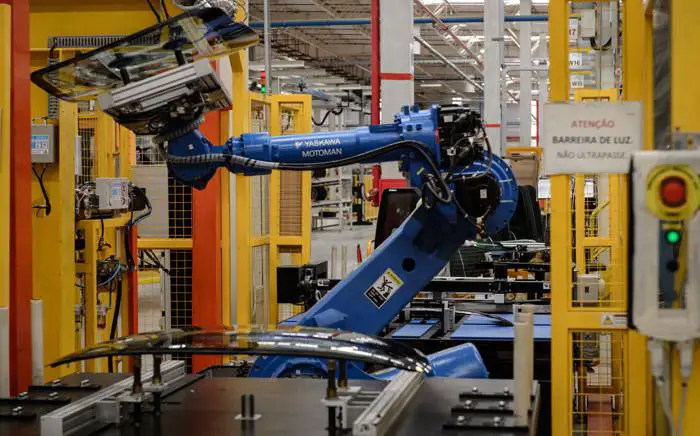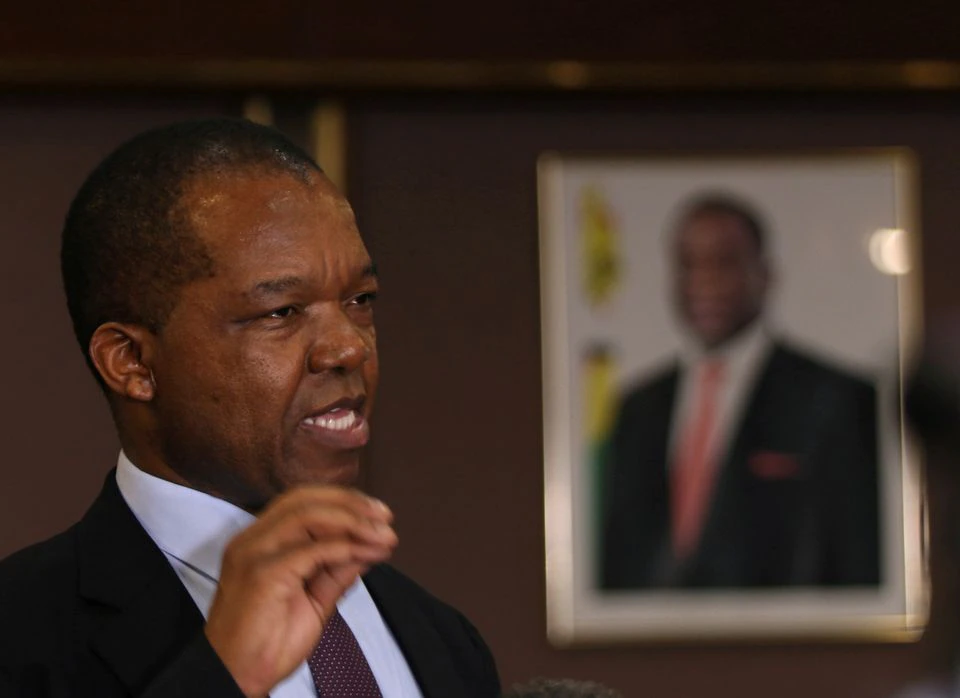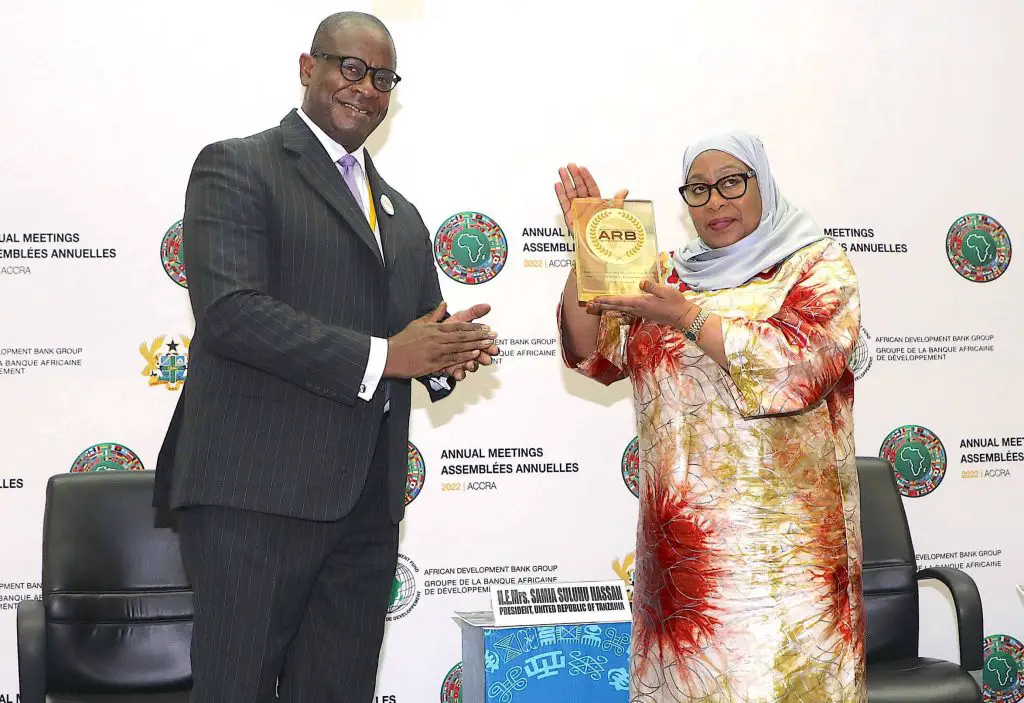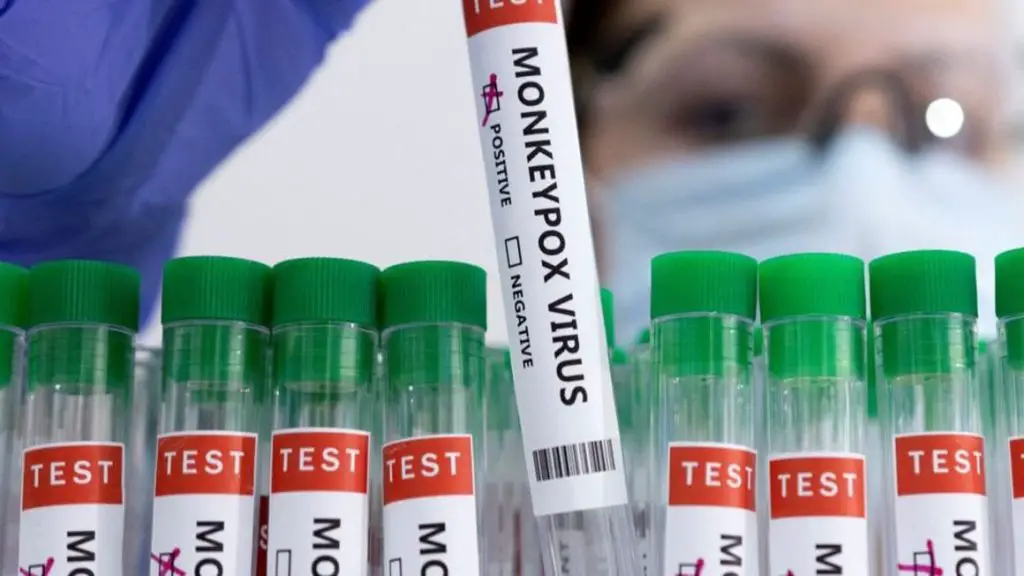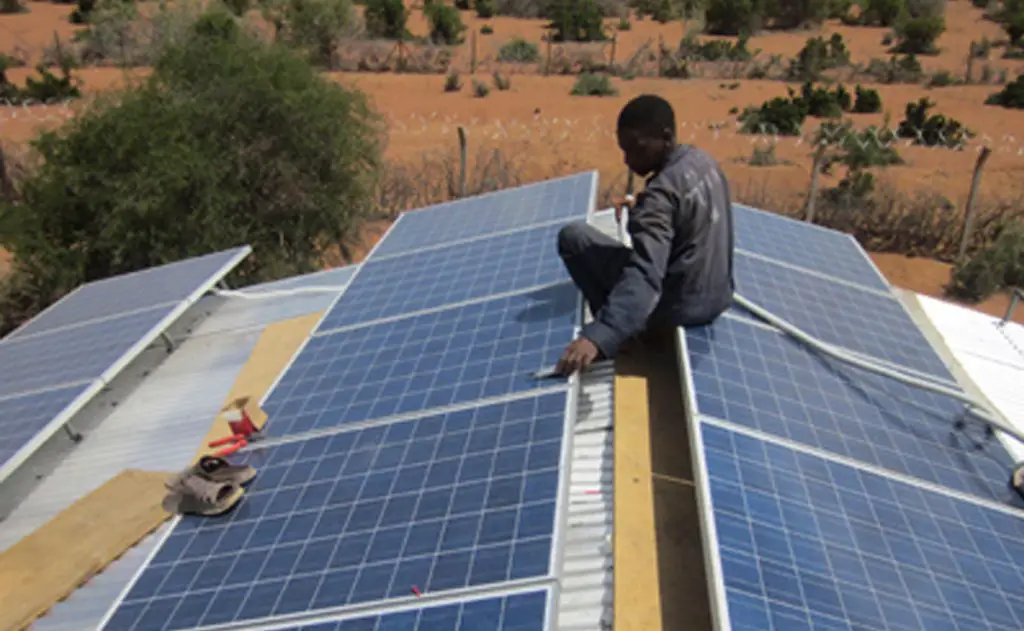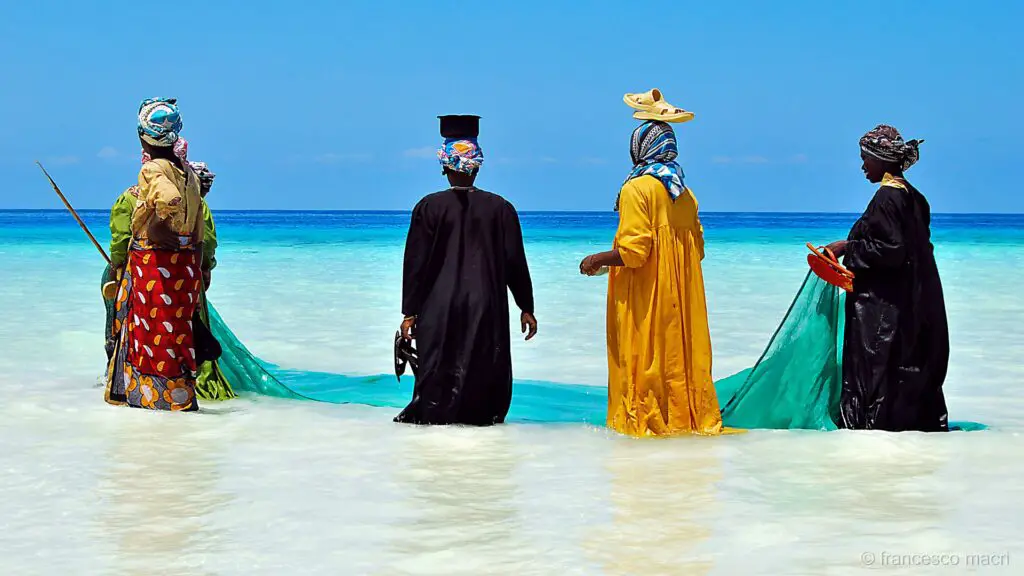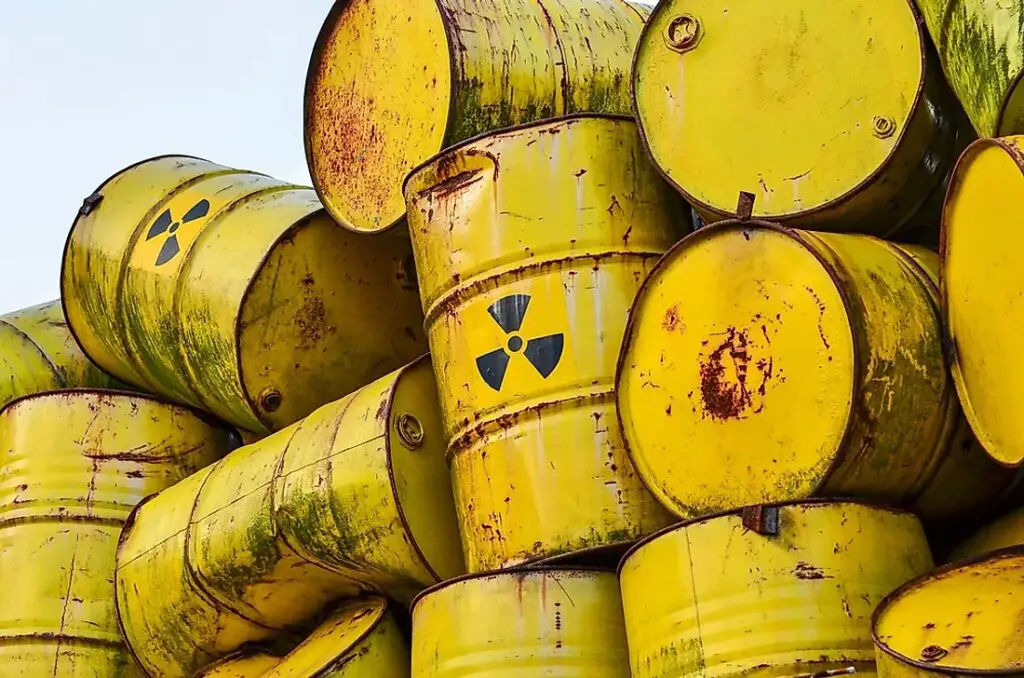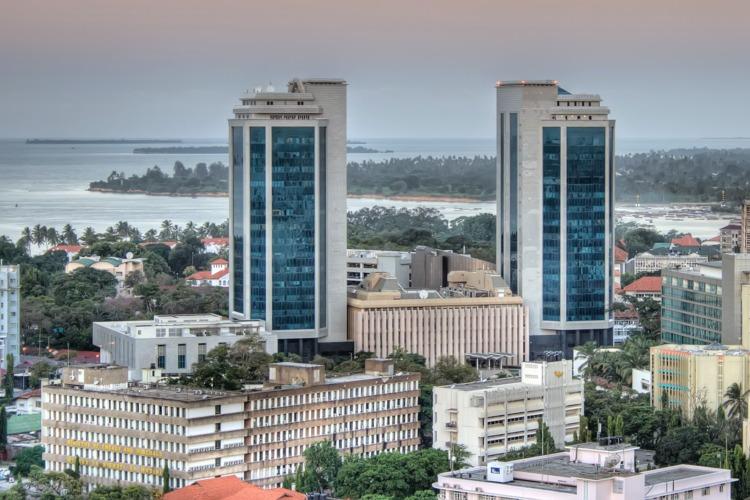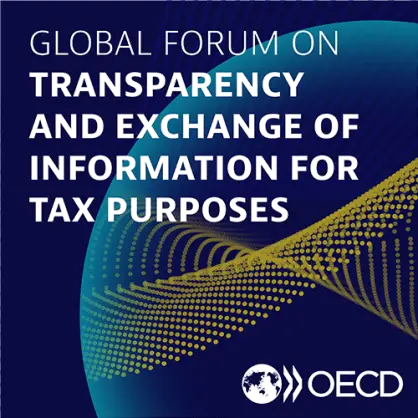- Africa’s new dawn: the rising role of digital and AI in agriculture
- Can Dangote Refinery Transform Africa Energy Ambition
- Gallup Survey: 80 per cent of Kenyan Workers Are Disengaged and Seek New Opportunities
- Madagascar Man Freed from 5KG Tumor After 15-Year Struggle
- How women in Africa are perceived and treated
- Sugar consumption in Kenya to Increase to 1.23 Million Tonnes
- Can Somalia and Turkey Oil deal Bring Change in Somaliland
- Remittances to Kenya dropped to $371.6 million in June, marking a six month low
Browsing: African Development Bank (AfDB)
The widespread adoption of information and communication technology (ICT) by manufacturing companies the world-over is driving competition and permanently disrupting the playing fields.
According to an article by Cision PRNewswire published on May 11, 2022, the competition for a strong manufacturing industry is a global one, and initiatives to promote and advance manufacturing from other governments include Germany’s “Industrie 4.0”, France’s “Industrie du Futur,” and China’s “Made in China 2025”.
Japan has planned Society 5.0 (Industry 4.0), targeting its economic and social challenges, such as an aging population, labor shortages, and weak growth through advanced technologies. Germany Industrie 4.0 Initiative aims to create an industry infrastructure fit for sustainable future manufacturing in the country.
Recently, African countries have made promising progress towards industrialization, exhibited in the continent’s strategic framework for leveraging the pan-African drive for achieving inclusive and sustainable development, Agenda 2063.
However, the continent has faced unprecedented disruption over …
Zimbabwe’s Central Bank said the increase in its policy rate to 200 per cent from 80 per cent will take effect from July 1 after annual inflation hit almost 192 per cent this month.
The benchmark interest rate was last raised to 80 per cent in April from a previous 60 per cent.
“The committee noted that the increase in inflation was undermining consumer demand and confidence and that, if not controlled, it would reverse the significant economic gains achieved over the past two years,” central bank governor Dr. John Mangudya said.
The latest figures from the Zimbabwe National Statistics Agency (ZIMSTATS) showed Saturday that the country’s annual inflation rate reached 191 per cent in June. A new blow to the purchasing power of Zimbabweans, stoking fears of a return to the 2008 hyperinflation period where savings were wiped out.…
Last year, the Board of Directors of the African Development Fund (AfDB) approved another loan of around $116 million to Tanzania for the upgrade of a 160-km road corridor in the southern part of the country.
This enormous funding by the Bank actually served to cover 98.71% of the project cost; while the remaining 1.29% was met by the government of Tanzania. It is expected that the AfDB will continue funding Tanzania’s road works and other transport infrastructure especially given the country’s strategic geographical location.
Tanzania is the gateway into Africa’s interior and it is also the way out to the rest of the world via the Indian Ocean.
In Tanzania, it is the Tanzania National Roads Agency (TANROADS) is responsible for the improvement of road maintenance and development. The Agency is responsible for the management of 35,000 Km of roads made up of 12,786 Km of trunk roads and …
Cases so far have “mainly but not exclusively been identified amongst men who have sex with men,” according to WHO. This new revelation is against known medical knowledge of the disease because the WHO considers monkeypox not to be a sexually transmitted infection.
In a recent media briefing, Dr John Brooks, an epidemiologist with the US Centers for Disease Control and Prevention, explained that “…monkeypox is not a sexually transmitted infection in the typical sense, but it can be transmitted during sexual and intimate contact.”
From there onwards, the disease has continued to spread, as of May 21st the WHO has reported some 92 confirmed cases and 28 suspected ones. In the wake of this outbreak in the UK, other cases have been reported in Spain and Portugal and several other European countries.…
- Uganda to resume sugar imports into Tanzania
- Kenya is yet to allow the proposed import of 90000 tonnes of Ugandan sugar
- Investigation missions pry into a source of Ugandan sugar
Tanzania will now import sugar and anti-retroviral (ARVs) drugs from Uganda after President Samia Suluhu managed to iron out over three years of trade creases between the two countries.
After the agreement, the two countries released a joint communiqué in which they published the trade agreement details. According to the executive communication, Uganda will now supply up to 10,000 tonnes of sugar to Tanzania every year.
This is a major turn of events from zero to 10000 tonnes which finally ends Tanzania’s 2019 ban on Uganda sugar. Before the 2019 ban on Uganda sugar imports into Tanzania, Uganda was exporting into Tanzania in excess of 20000 tonnes.
During the ban, Tanzanian officials had argued that the sugar that Uganda was …
Unfortunately, even with an increased power supply, electricity is mostly used for lighting but the vast part of the community still relies on biomass ‘…which makes up close to 90% of the total primary energy consumption in Tanzania.’
According to REA, this reliance on biomass leads to the deforestation of 100,000 hectares every year and only about a quarter of this is ever reforested. At the moment, at least 63.5% of the households in Tanzania Mainland use firewood as the main source of energy for cooking which is the main cause of deforestation along with the clearing of forests for cultivation.
Another 26.2% of Tanzanians rely on charcoal for cooking and another 5.1% use, liquified petroleum gas and a mere 3 per cent use electricity. These figures show that even though there is an increased supply of electricity there is still profound destruction of forests and the atmosphere through deforestation …
Detailing on the source of the funding and its uses, the president said the US$100 million (over TShs230 billion) is from the International Monetary Fund (IMF) as a loan to Tanzania, and another US$100 million is for the Isles.
“The IMF fund will be directed to health, education, water and power sectors, as well as economically empowering wananchi (citizens/the public),” local media quoted President Mwinyi.
The president went ahead and gave a very detailed explanation of the planned use of the funding detailing each sector and the allocated amount and then he got to the part about funding to support businesses.…
Toxic substances that are contained in e-waste contaminate the soil; however, they do not stop with the topsoil.
Heavy metals such as mercury, lithium, lead and barium leak through the earth all the way to the table water contaminating groundwater.
Now groundwater is the basic source of all water that we consume because groundwater is the water that eventually resurfaces as springs, ponds, streams, rivers and lakes.…

The government of Tanzania has received 1.3tri/- as Covid-19 relief package from the International Monetary Fund (IMF). Now the government has announced plans to implement a score of projects that will be financed with this fund in a move it says, will help the private sector’s liquidity.
As part of its own fiscal policies to cushion the economy from the negative effects of the global pandemic, the government, through the Central Bank has also released another 1tri/- to commercial banks in a bid to increase their lending capacity.
With these funds, the Central Bank released funding and IMF funding that goes into implementing national projects, the private sector is empowered to borrow and win project tenders and as such increase money circulation in the economy.
The strategy is meant to back the economy which had slowed down due to reduced demand which in turn reduced produced production stagnating the whole …
The Global Forum on Transparency and Exchange of Information for Tax Purposes (Global Forum), the World Bank Group and the African Development Bank (www.AfDB.org) have jointly published a new version of the Manual on Exchange of Information (https://bit.ly/3CovIgS), in order to support tax authorities.
Exchange of information (EOI) is an essential tool for tax authorities worldwide to ensure that all taxpayers pay the correct amount of tax.
The previous edition of the manual, issued in 2013 by the Global Forum and the World Bank Group, was dedicated to exchange of information on request and spontaneous exchange of information. This new edition covers a broader range of exchange-of-information tools, such as tax examinations allowing two or more jurisdictions to conduct simultaneous audits of person(s) of common or complementary interest, or tax examinations abroad to collect information in a foreign jurisdiction.

The manual can easily be tailored to …





